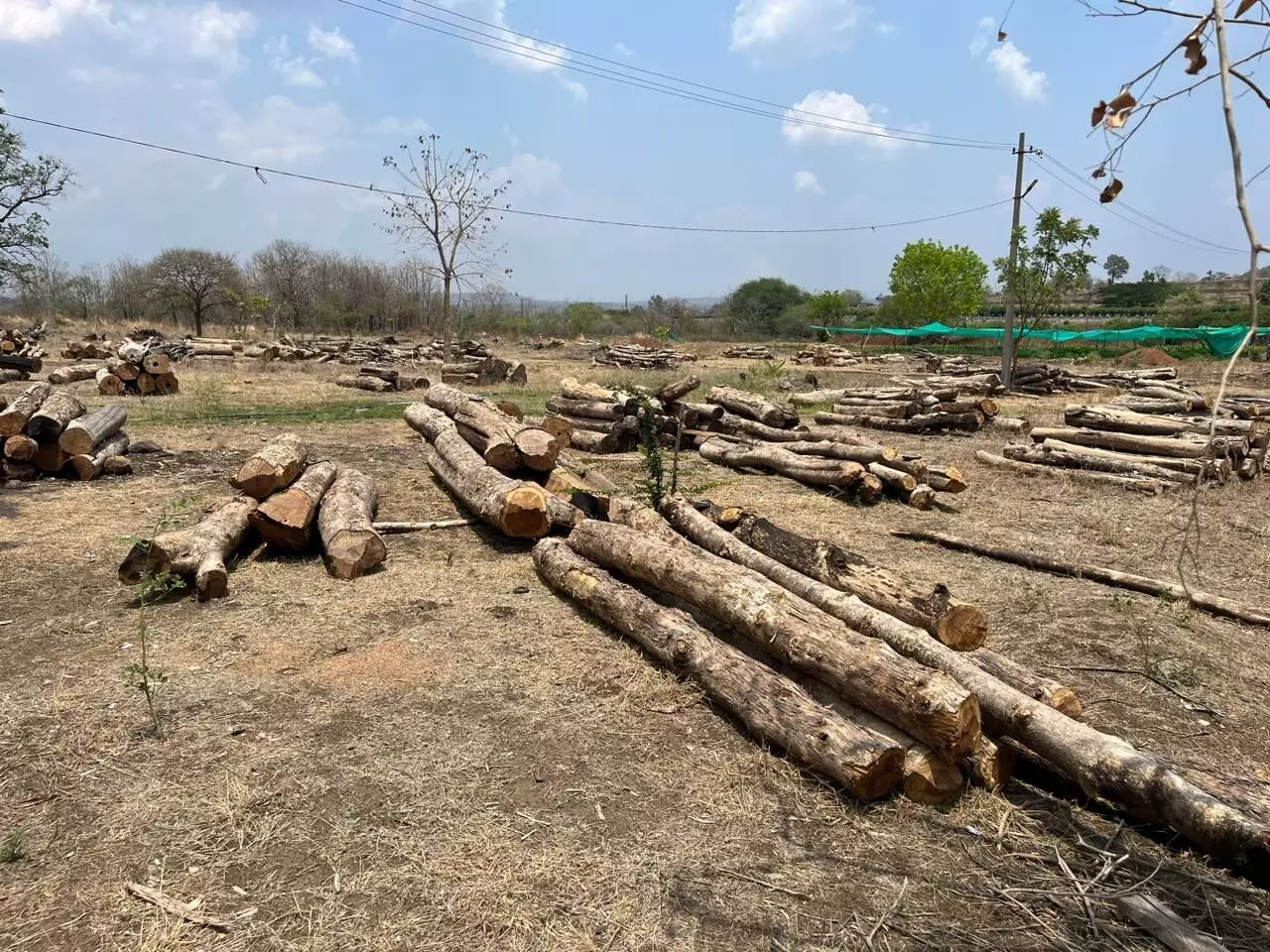Pushpa redux: Timber smuggling raises ugly head again in Adilabad
There is a nexus between the habitual offenders and timber smugglers based at Nizamabad district headquarters and the Khanapur area in Adilabad
By S. Harpal Singh
Adilabad: The sprawling timber depot of the Forest department by the side of the HN 44 at Ichoda in the Adilabad district is seeing activity once again. One can now see stacks of teak wood, segregated according to the length and girth of the logs, neatly stacked in the depot following the seizure of illegally felled trees.
After a lapse of a few years, teak felling has once again become rampant in the district threatening a pristine environment and the usual culprits are the Multanis of Ichoda Mandal, many of whom have been categorized as habitual offenders. But the Multanis are not alone in illegally decimating this commercial variety of wood from the forests of Adilabad and some parts of the Nirmal district.
There is a nexus between the habitual offenders and timber smugglers based at Nizamabad district headquarters and the Khanapur area in Adilabad. Observers say that this nexus has elevated the two places as a prime source of teak wood.
The recent seizure of a lorry load of teak from a roadside dhaba in Gudihatnoor also exposes the laxity of the Forest and Police departments in controlling the menace. Several seizures of illegally felled teak, as well as carpentry workshops in interior villages, have been made in the last three months which only point towards the reflourishing of the unlawful activity.
The state government crushed illegal felling and illegal trade in teak timber in 2019. Several identified Multanis and sawmills in Nizamabad were booked under stringent sections of law which had effectively controlled the decimation of forests in Adilabad.
Back then, the government had even designed a rehabilitation plan for the 113 Multanis identified as habitual offenders. This plan, however, never saw the day which perhaps became a reason for the unemployed youth from the community to take to illegal felling of teak once again.
The over 6,000-strong Multani community found in Keshavpatnam, Gundala, Yellammaguda, and Jogipet in Ichoda Mandal and Sirikonda Mandal headquarter had settled during the time of the Nizam. Eighty-five-year-old Shaikh Fareed, the oldest Multani in Keshavpatnam claims that his community was pastoralist which had the families drift towards the legendary thick forests of Adilabad in search of pastures.
Primarily, the Multanis cultivate on podu lands. It is on these lands that the community is demanding rights for cultivation on about 400 acres of such land much in the fashion of the Forest Right Act, 2006.
Keshavpatnam, the village where the majority of the community lives is a squalid place with slush piling up even on internal roads. "We want better conditions to live in," demand Shaikh Esa and Shaikh Ali, elders in the community.
Observers say that Multanis be offered a rehabilitation package by reviving the shelved plan. "The strategy needs to be two-pronged by using force to control illegal felling and offering financial assistance for self-employment program," opined a Forest department official on conditions of anonymity.
"The 2018 rehabilitation plan had envisaged financial assistance to the tune of Rs. 2 lakh to each eligible individual. The plan had also included agriculture development in the area by constructing a minor irrigation tank," he recalled.